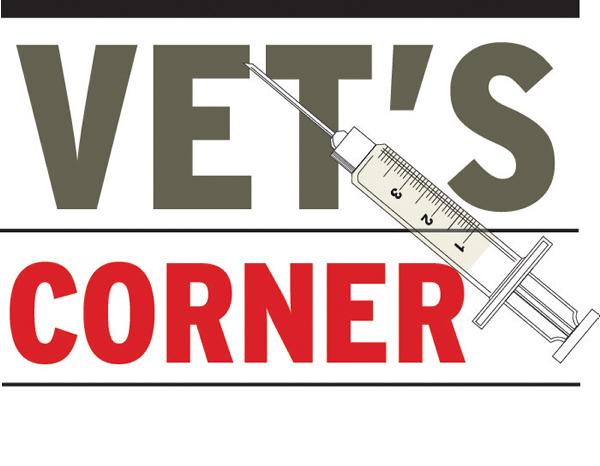The breeding season is just around the corner and disease prevention should be at the forefront of our minds. As new diseases continue to emerge, we must not overlook traditional disease risks such as Leptospirosis. It is a widespread endemic disease and is also a significant zoonotic disease risk to humans.
Leptospirosis is more commonly referred to as Weil’s disease in humans, which causes flu-like symptoms and can be life-threatening.
The main source of the Leptospira Hardjo species is from bovine urine and abortion product. Therefore, urine splashing in the parlour poses a major risk to farmers’ health. Sheep can act as a carrier, so co-grazing is also a risk factor. Maintaining good biosecurity is essential to prevent new infection, including isolation of bought-in animals, double-fencing and restricting access to open waterways.
There are a number of key clinical signs to watch out for, such as milk drop, lethargy, fever and in-appetence. Leptospirosis is one of Ireland’s most common causes of abortion, usually occurring six to 12 weeks after initial infection, but mostly occurring during the last three months of pregnancy.
Premature, still-born and weak calves can also be a feature of the disease. Mastitis can also be a sign, with yellow colostrum-like or blood-tinged milk in all quarters, but this is now quite rare in Ireland.
Where signs of infection are suspected, contacting your vet to perform diagnostic tests is advised. On positive confirmation of disease, treatment with prescribed antibiotics can be useful, but, as always, prevention is better than cure.
The ideal time to annually vaccinate is approaching, as a booster in the pre-breeding period is the gold standard regime. It is vital to start the primary vaccine programme correctly, with two shots four weeks apart and don’t forget to vaccinate your maiden heifers.
Hazell Mullins works at Glasslyn Veterinary Clinics, Glasslyn Road, Bandon, Co Cork, part of XLVets, working to achieve a better future for agriculture and veterinary in Ireland. See www.xlvets.ie.
The breeding season is just around the corner and disease prevention should be at the forefront of our minds. As new diseases continue to emerge, we must not overlook traditional disease risks such as Leptospirosis. It is a widespread endemic disease and is also a significant zoonotic disease risk to humans.
Leptospirosis is more commonly referred to as Weil’s disease in humans, which causes flu-like symptoms and can be life-threatening.
The main source of the Leptospira Hardjo species is from bovine urine and abortion product. Therefore, urine splashing in the parlour poses a major risk to farmers’ health. Sheep can act as a carrier, so co-grazing is also a risk factor. Maintaining good biosecurity is essential to prevent new infection, including isolation of bought-in animals, double-fencing and restricting access to open waterways.
There are a number of key clinical signs to watch out for, such as milk drop, lethargy, fever and in-appetence. Leptospirosis is one of Ireland’s most common causes of abortion, usually occurring six to 12 weeks after initial infection, but mostly occurring during the last three months of pregnancy.
Premature, still-born and weak calves can also be a feature of the disease. Mastitis can also be a sign, with yellow colostrum-like or blood-tinged milk in all quarters, but this is now quite rare in Ireland.
Where signs of infection are suspected, contacting your vet to perform diagnostic tests is advised. On positive confirmation of disease, treatment with prescribed antibiotics can be useful, but, as always, prevention is better than cure.
The ideal time to annually vaccinate is approaching, as a booster in the pre-breeding period is the gold standard regime. It is vital to start the primary vaccine programme correctly, with two shots four weeks apart and don’t forget to vaccinate your maiden heifers.
Hazell Mullins works at Glasslyn Veterinary Clinics, Glasslyn Road, Bandon, Co Cork, part of XLVets, working to achieve a better future for agriculture and veterinary in Ireland. See www.xlvets.ie.






 This is a subscriber-only article
This is a subscriber-only article










SHARING OPTIONS: